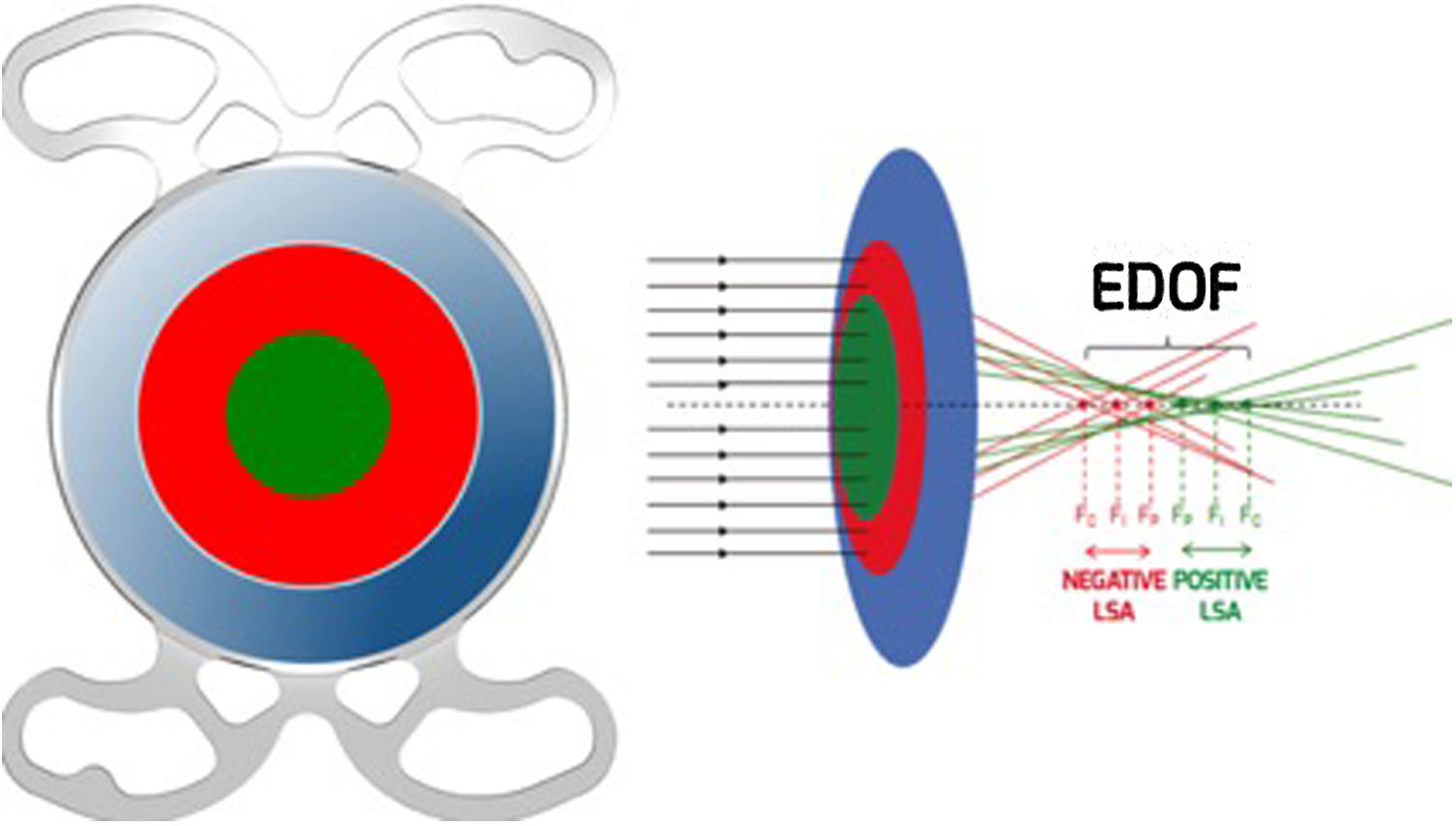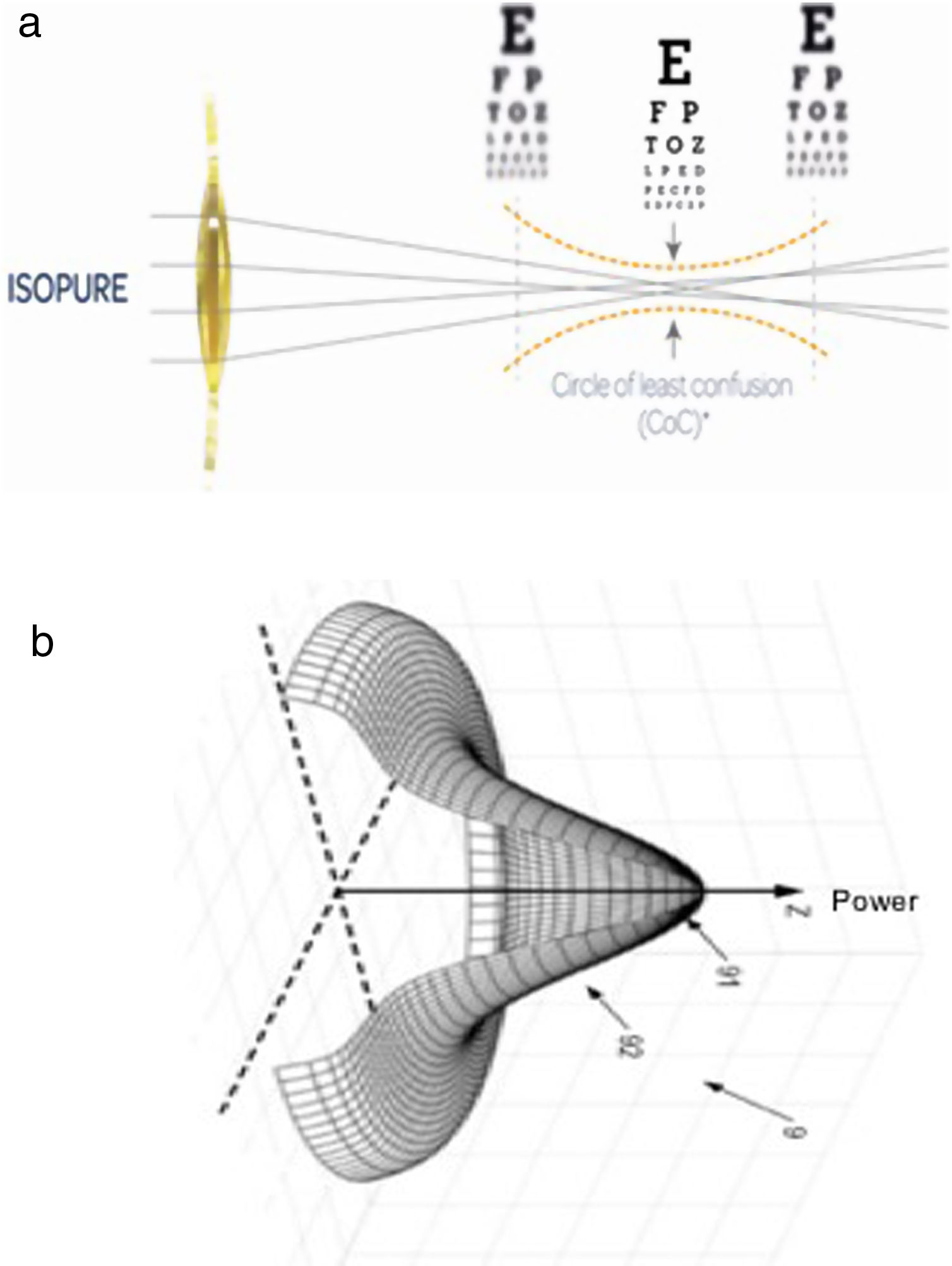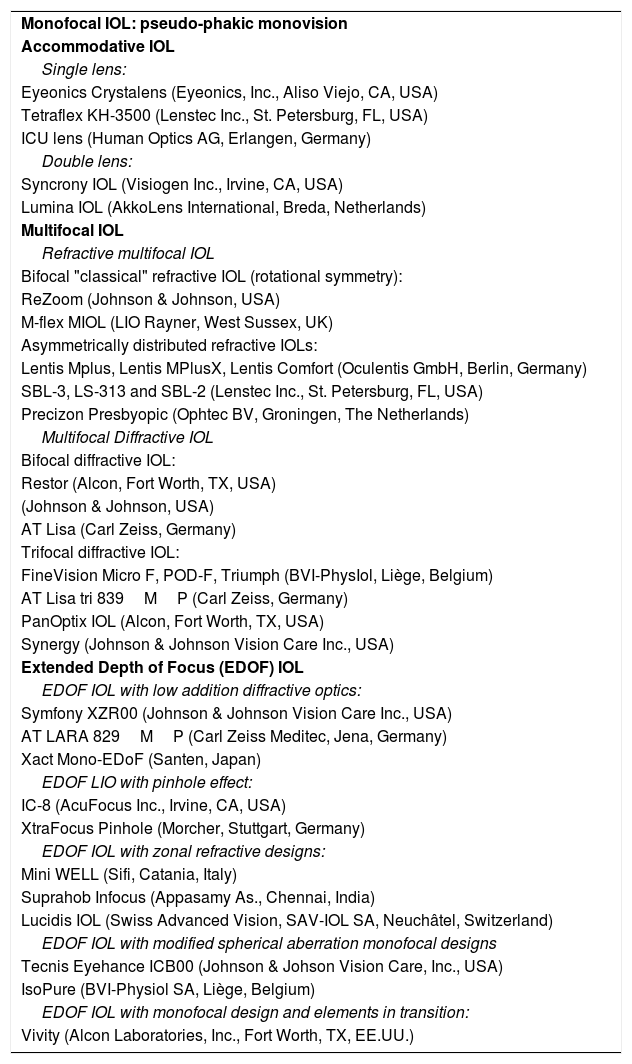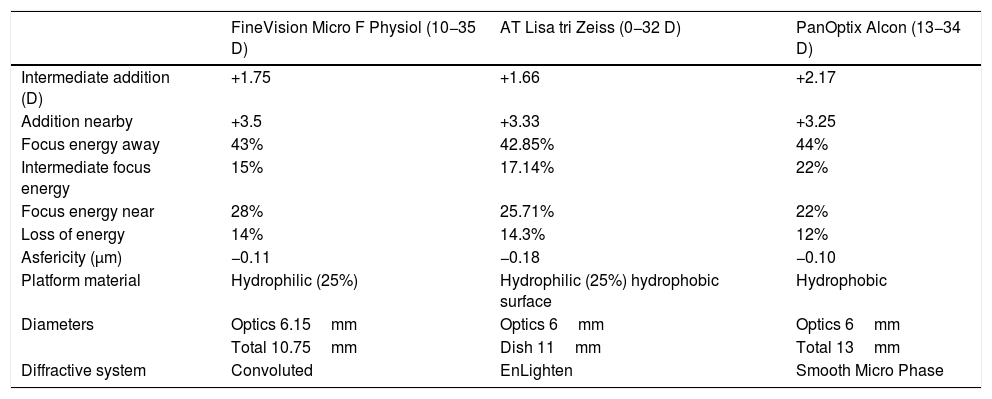Presbyopia is the progressive and irreversible loss of accommodation due to aging. It is one of the main causes of loss of quality of life in people from 45 years of age, due to the, often novel, dependence on spectacles. The eagerness to correct it by ophthalmologists driven by the desire of millions of people who suffer from it, has become one of the main drivers for the development of intraocular lens (IOL) technology over the last twenty years.
Material and methodsThis review briefly presents the different alternatives that have allowed us to improve the crystalline lens surgical approach of presbyopia; from monofocal lenses and monovision technique, accommodation, refractive, and diffractive multifocal lenses, and finally the most recent focus or extended depth or focus/ field lenses known as EDOFs.
ResultsEach IOL has its advantages, limitations and disadvantages. Furthermore, there is no single lens that suits the needs of all patients.
ConclusionsIt is necessary to know the variety of lenses available, and to have an in-depth understanding of their optical properties, as well as the impact that these will have later on their clinical performance and on the visual quality of the patients. This should help us to select the best alternative for each of them.
La presbicia es la pérdida progresiva e irreversible de la acomodación debido al envejecimiento. Es una de las principales causas de disminución de la calidad de vida en personas a partir de los 45 años derivada de la, muchas veces novedosa, dependencia de las gafas. El afán por corregirla por parte de los oftalmólogos, impulsados por el deseo de millones de personas que la padecen, se ha convertido en uno de los principales motores de desarrollo de la tecnología de las lentes intraoculares (LIO) durante los últimos veinte años.
Material y métodosEsta revisión repasa las distintas alternativas que han permitido ir mejorando el enfoque quirúrgico cristaliniano de la presbicia; desde las lentes monofocales y la técnica de la monovisión, a las lentes acomodativas, pasando por las lentes multifocales refractivas y difractivas y terminando con las más recientes lentes de foco o campo extendido conocidas como EDOF.
ResultadosCada una de estas LIOs tiene sus ventajas, limitaciones e inconvenientes; y además, no existe la lente que se adapte a las necesidades de todos los pacientes.
ConclusionesEs necesario conocer la variedad de lentes disponibles, y comprender en profundidad tanto sus propiedades ópticas como el impacto que éstas van a tener luego en su rendimiento clínico y en la calidad visual de los pacientes. Esto nos debería ayudar a poder seleccionar la mejor alternativa para cada uno de ellos.
















